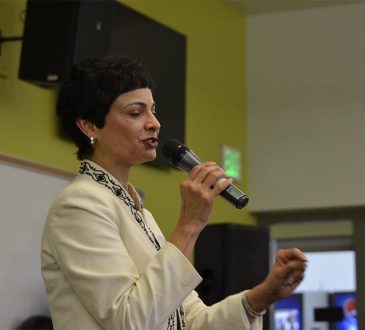From Shock To Survival: COVID-19 And What Is Spells For The Future Of Business

“We are in this together” – this has been the unifying banner under which nearly all businesses have rallied since COVID-19 really hit.
Over the first five weeks of COVID-19 we saw a flurry of initiatives from businesses across many sectors, all of them aimed at helping society.
During that initial ‘Shock Phase’, initiatives ranged from employee job reassurance, CEO salary sacrifices, donations, and support for healthcare professionals and vulnerable customers, to the manufacturing of PPE and mortgage holidays.
That Shock Phase is now over. As companies slowly transition from shock to survival during what is arguably history’s biggest peacetime crisis, it is becoming increasingly clear that the coronavirus pandemic has the potential to completely transform how the world does business.
Before I go into that, let’s consider the characteristics of the Shock Phase further. Emotional touchpoints of solidarity, fairness, responsibility and compassion resonated. As did the belief in ideas such as human ingenuity and pulling together in times of crisis.
Indeed, Alva revealed in our Business and the Pandemic: What the Data Shows report that actions focused on the production of medical equipment and employee health protection were the most likely to impact positively on a business’ reputation. The impact of executive pay reduction schemes and vulnerable customer support was also very positive for those launching them.
The highest ranking initiative in terms of impact was the electric car giant Tesla’s announcement that it would turn over its production facilities to building ventilators. This was seconded by French luxury brand LVMH’s announcement that it would manufacture hand sanitiser, followed by Facebook’s $1,000 bonuses for all of its 45,000 employees. Other high-ranking initiatives included Apple and Google’s joint contact tracing app, and Lidl’s checkout protection screens.
These kind of activities were designed to avoid the immediate damage to those most at risk, almost at any cost. But our research shows that as a degree of safety has now developed in communities, businesses have shifted attention away from philanthropic announcements.
Instead, businesses are seeking to gain a better understanding of the impact of the pandemic and are making more pragmatic decisions based on that understanding. We are calling this the ‘Existential Phase’.
Business survival is now the priority, and corporates are focused on juggling different competing demands on their resources while at the same time trying to prepare themselves for what the future may hold. This dynamic is forcing big business to ask some fundamental questions.
One dominant theme is the growing concern around the threat of ‘Big Government’ to society. Sparked by the combined emergency Coronavirus Act, existing far-reaching powers to gather data, and the newly-developed contact-tracking technologies, concerns over social control are expected to proliferate.
Another theme that will gain voice is the view that businesses should move away from the deeply ingrained belief that they must maximise shareholder returns at all costs. There are already loud voices acknowledging the flaws in our current model of capitalism and those voices will grow as the fight for survival continues.
I expect that COVID-19 will act as an accelerant to many of the societal changes already under way, such as deglobalisation, the rise of populism, and the demise of shareholder capitalism in favour of a stakeholder model.
Such changes will raise many big questions, and ones that will not be answered overnight. As we progress into the coming weeks and months, we will see lots more answers to difficult questions as businesses are forced to do more with less. Many will find better, simpler, less expensive, and more inclusive ways to operate.
New business models will arise to tackle the coming major themes: global healthcare, global equality and global climate change. And those that don’t find the right ways to adapt and innovate will face the risk of extinction.
For more information and to view the full research, visit Business & the Pandemic: What the data shows.
Written by Alberto Lopez Valenzuela. Have you read?
# Ranking of the world’s happiest countries for 2020.
# These are the countries with the largest average household size.
# Ranking of the world’s best countries for a child to be born in for 2020.
# Ranking of the world’s best countries to invest in or do business for 2020.
Add CEOWORLD magazine to your Google News feed.
Follow CEOWORLD magazine headlines on: Google News, LinkedIn, Twitter, and Facebook.
This report/news/ranking/statistics has been prepared only for general guidance on matters of interest and does not constitute professional advice. You should not act upon the information contained in this publication without obtaining specific professional advice. No representation or warranty (express or implied) is given as to the accuracy or completeness of the information contained in this publication, and, to the extent permitted by law, CEOWORLD magazine does not accept or assume any liability, responsibility or duty of care for any consequences of you or anyone else acting, or refraining to act, in reliance on the information contained in this publication or for any decision based on it.
Copyright 2024 The CEOWORLD magazine. All rights reserved. This material (and any extract from it) must not be copied, redistributed or placed on any website, without CEOWORLD magazine' prior written consent. For media queries, please contact: info@ceoworld.biz
SUBSCRIBE NEWSLETTER








